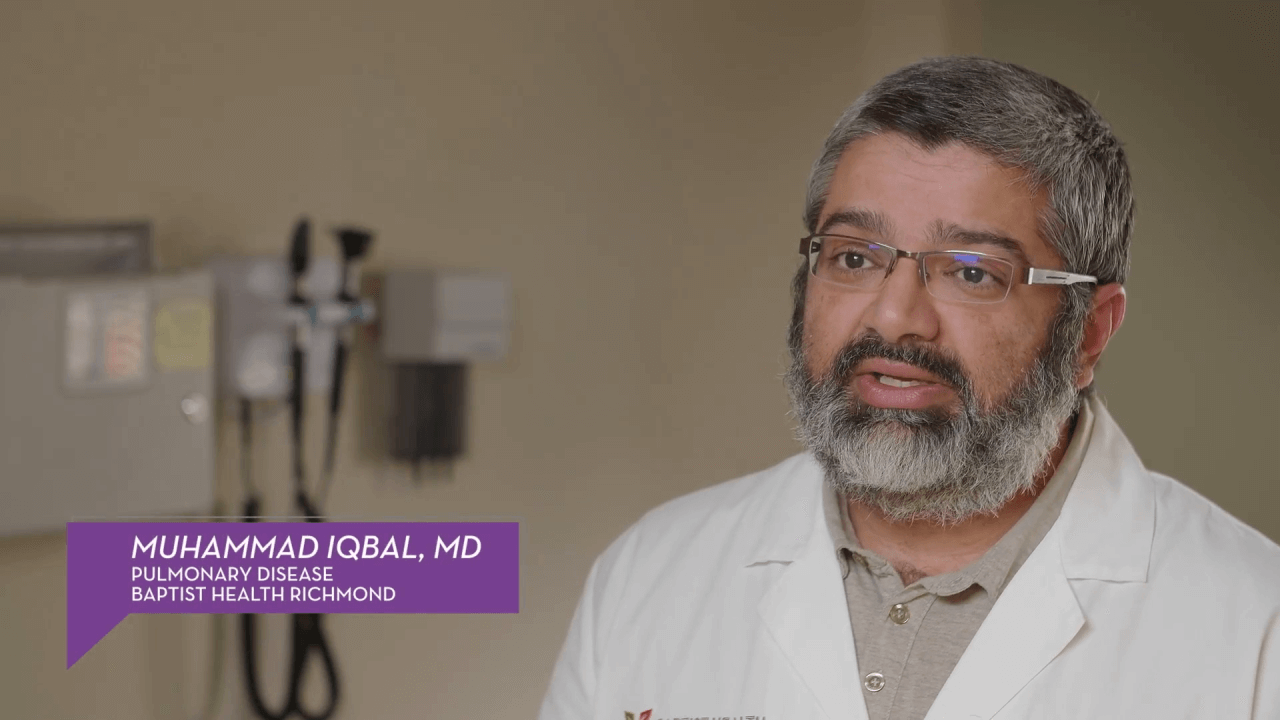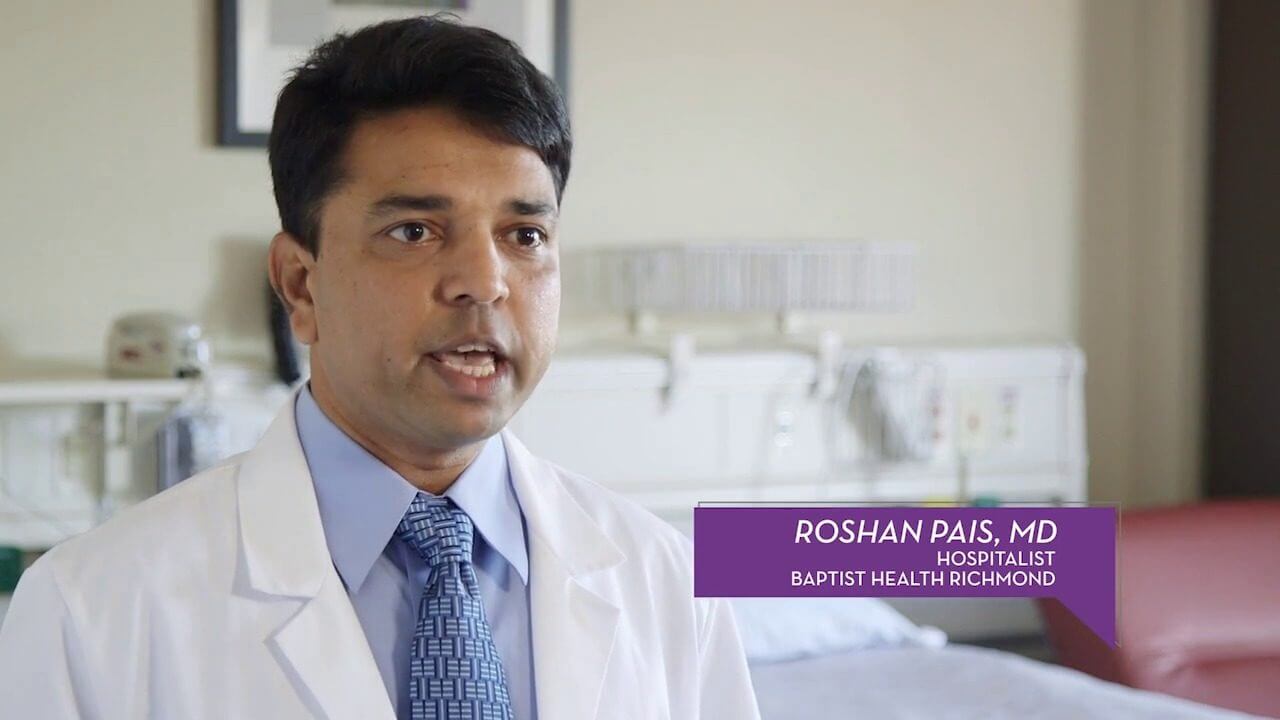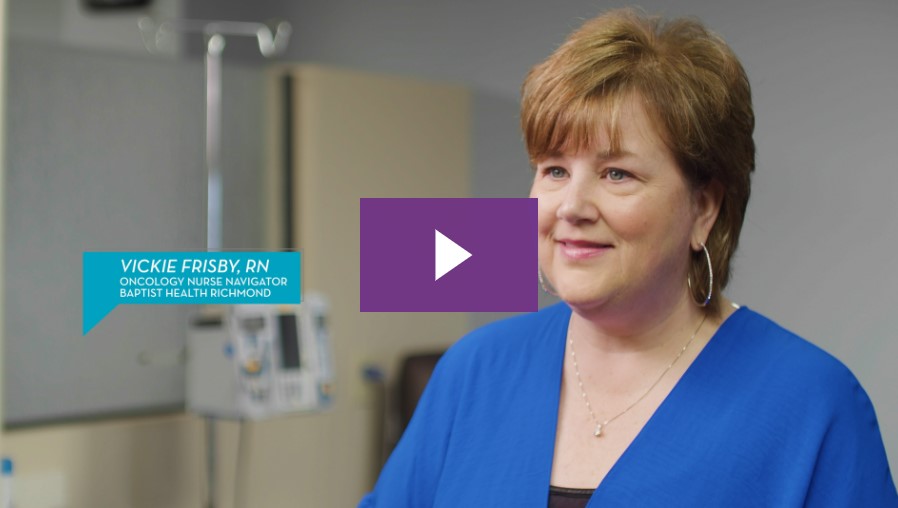The Risks of Smoking
Baptist Health Richmond:The Risks of Smoking
Pulmonologist MUHAMMAD IQBAL talks about the dangers of smoking, describes the immediate and long-term benefits of quitting, and discusses some resources to help smokers quit.
The Risks of Smoking Health Talks Transcript
Muhammad Iqbal, MD, Pulmonologist
The risks of smoking are pretty much for the entire body. In the lungs, it can cause COPD. It can increase your risk of pneumonia. It can increase your risk for bronchitis. It is definitely a major risk factor for lung cancer. If you’ve been a smoker for a long time, which we define as 10 years — a pack or more — yes, you should get tested. You can do pulmonary function tests, and that can at least hint you toward any potential damage in the lungs. If you quit smoking today, your risk of having bronchitis or pneumonia goes down exponentially. And within a matter of a few months, your risk of other damage like heart attacks and memory loss and strokes goes down. Thankfully, because of the awareness with regards to smoking-related health problems, there are lots of agencies out there with free resources. One thing I recommend to people is smokefree.gov. It has a lot of non-pharmacological resources. It can give you some ideas to start the conversation at least. There’s an app for that, too. You can talk to the app, and it connects you to someone locally. There are counseling services available for free. A lot of local health departments will have a program to help you quit smoking. About 45 percent of people will relapse within the first year. The good thing is, if you can stay quit from smoking for a year, then your chances of relapse are a lot less, because the one most important thing is to not to even smoke one.



